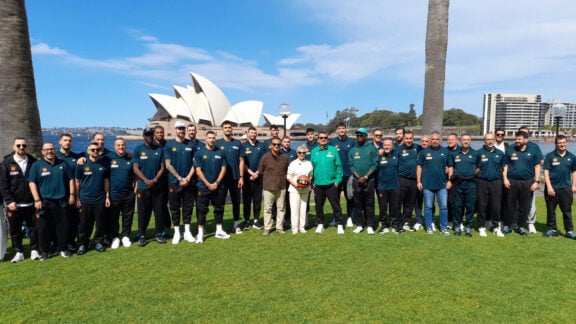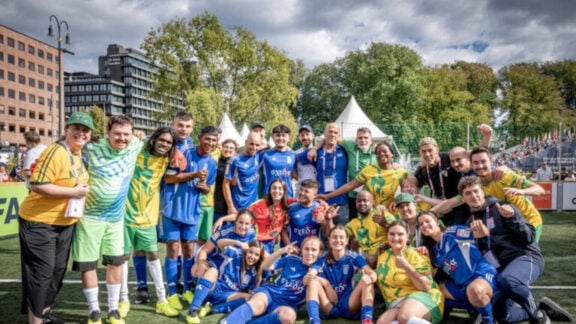Melbourne-based academic, Dr Michalis S. Michael will deliver the opening talk on the Famagusta Dialogues in August 21 – Tell it to the Lion. The Australia-initiated Famagusta Dialogues event coincides with the 50th anniversary of the Turkish invasion of Cyprus, providing a profound context for the discussion.
Famagusta, Ἀμμόχωστος, or Varosha in Turkish – since 1974 – now an abandoned city. The city, now empty, is etched deeply into the cultural and political landscape of Cyprus. This coastal city, once a bustling centre of trade and culture, is now a focal point of the ongoing Cyprus conflict. Famagusta’s legacy is one of crisscrossing histories and identities, each vying for recognition in a complex socio-political environment that remains as unpredictable.
Famagusta’s narrative has been further complicated by its status as a “third space” in the Cyprus Problem. Famagusta’s status remains in limbo, while efforts have been made to address its future through innovative initiatives, such as the Famagusta Dialogues.
These dialogues focus on bringing together the different communities of Famagusta from within localised settings. Dr Michael, Director of the Centre for Dialogue–Global Reconciliation La Trobe University, leads this initiative with the aim of testing a fundamental hypothesis in conflict resolution: that localised interventions are more accessible, promising, and effective than national, or international efforts.
The Famagusta Dialogues have revealed several key insights into the nature of localised conflicts. First, the binary approach to defining and engaging conflicting parties often proves too rigid and, at times, counterproductive.
The situation in Famagusta, particularly in the contested area of Varosha, illustrates the complexity of these conflicts. The dialogues also highlight the significance of “hauntology,” a concept that reflects the city’s haunted past and its impact on the present and future.
Memory and imagination play roles in sustaining these dialogues, and they offer challenges and opportunities for broader conversation. The creation of an in-group identity among Famagusta’s communities emerged as a vital process, which helps to counteract the negativity of external influences. However, understanding both commonalities and differences between these groups is essential to fostering cooperation and overcoming nationalistic tensions.
While the Famagusta Dialogues are deeply rooted in the specific context of Cyprus, the lessons learned have broader applications for other localised conflicts around the world. Dr Michael’s research underscores the importance of dialogue as a tool for defusing polarization and maximizing the prospects for constructive engagement in divided communities.
The Famagusta Dialogues offer hope, for the city itself, and the possibility of resolving conflicts in other parts of the world where local dynamics play a crucial role.
Dr. Michael will present the first talk on the Famagusta Dialogues on Wednesday, August 21, 1-2 pm. The presentation will take place both face-to-face in Hu2 431 and via Zoom – as part of a series of academic talks organised by La Trobe University.
For those interested in sharing research in future sessions, there is an open invitation to present. This opportunity is extended to postgraduate students, offering a platform to receive feedback and engage with colleagues.
Presentations for the rest of the semester will continue Wednesdays from 1-2 pm, both in person and online.
Wed 21st August 1-2 pm – Dr Michalis S. Michael [Honorary Senior Research Fellow, LTU]
Wed 2nd October 1-2 pm – Dr Ian Woolford [Hindi Studies, LTU]
Wed 23rd October 1-2 pm – PhD Milestone presentations by Xenia Ntolopoulou [Classics] and Greg Asquith [Translation Studies – French]
Zoom link for presentations.









